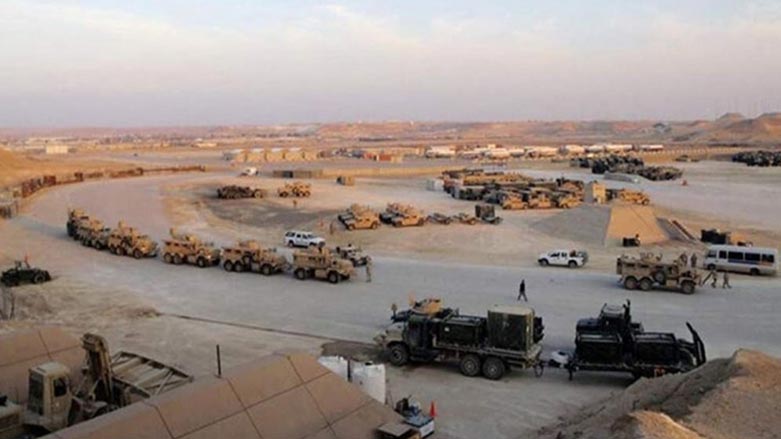US announces plans for summer troop rotation in Iraq

WASHINGTON DC (Kurdistan 24) – The US army has announced its plans for this summer’s upcoming rotation of US troops deployed to Iraq.
In a routine announcement last week, the Army said the 1st Brigade Combat Team, 25th Infantry Division, which is currently in Iraq, will return home.
That unit is based in Alaska, and it left for Iraq last September. It will be replaced by the 2nd Brigade Combat Team of the 82nd Airborne Division, which is stationed at Fort Bragg, North Carolina.
The announcement was one of seven such announcements made on Thursday that include the rotation of Army units stationed in Afghanistan (2), Kuwait (1), and Europe (3).
Over the past months, the US has been consolidating its positions in Iraq, moving troops out of smaller bases and into two large bases: Al-Assad in western Iraq’s Anbar province and Erbil in the Kurdistan Region.
Earlier this month, the US brought two Patriot air defense missile batteries into Iraq. One is based at al-Assad and the other is deployed in Erbil.
Read More: Coalition to continue Iraq operations, as Patriot missiles arrive, and base consolidation proceeds
The Patriot batteries are meant to counter the threat from any Iranian ballistic missile attacks, like occurred in January, following the assassination of Qasim Soleimani, head of the Quds Force of Iran’s Islamic Revolutionary Guard Corps.
The consolidation of US forces into big bases, protected by Patriot missiles, will provide for better force protection. Notably, neither of the two bases is in territory where the population is predominantly Shia and where the pro-Iranian militias that have been attacking US troops can operate easily.
Additionally, Col. Myles B. Caggins III, Coalition military spokesman explained to Kurdistan 24 that “as the ISF [Iraqi Security Forces] improves its capabilities and can ‘own’ more territory in Iraq to root out ISIS, there is less need for Coalition forces to be in so many far-flung bases inside Iraq.”
The Kurdistan Region as a Strategic Ally
That Erbil is one of the two major sites chosen to host US troops represents, at least to some degree, tangible recognition of the Kurdistan Region as an important ally.
This perspective was articulated by Nicholas Heras, Middle East Portfolio Manager at Washington’s Institute for the Study of War, writing for Kurdistan 24 last December.
“America’s position in Iraq is tenuous. Iraqi militia groups tied to Iran are attacking US personnel and facilities, while there is a rising populism in Iraq that does not want to see an open-ended US military presence there,” Heras stated.
But “the Kurdistan Region represents a notable exception. It is, most significantly, a safe space for US forces. They are able to launch operations against the Islamic State in both Iraq and Syria, while the Kurds of Iraq have shown themselves to be excellent local partners for US policymakers, as well as US military officers,” he continued.
Read More: No Better Friends: The US-Kurdistan Region Security Partnership
Washington long had difficulty acting on that insight, perhaps because of its commitment to a “one-Iraq” policy, perhaps for other reasons. In the 1990s, for example, following the ceasefire to the 1991 Gulf War, the US subjected the Kurdistan Region to the same economic embargo imposed on the rest of Iraq.
That did not end until May 2003, in the early days of Operation Iraqi Freedom.
In 1992, when this reporter first visited the Kurdistan Region, I was struck by the vast, quiet region – roughly the size of Austria – and peaceful, although much of the area still lay waste, devastated by Saddam Hussein’s Anfal campaign.
What a wonderful place for an air base! It was a great spot, from which the US could watch over both Saddam and the Iranian regime, its two biggest nemeses in the region.
In separate discussions, I asked Masoud Barzani and Jalal Talabani, if they would accept a US base here.
“You’re welcome,” they each said—and so now, apparently, it has come to pass.
Editing by Karzan Sulaivany
